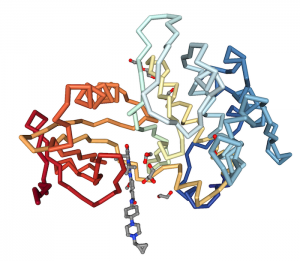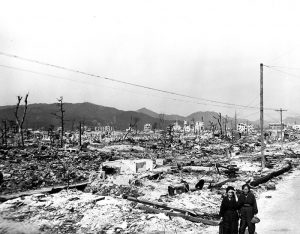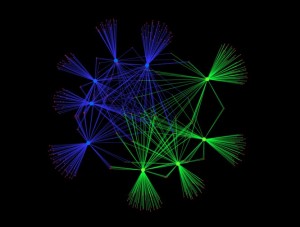Enter your address to receive notifications about new posts to your email.
Articles tagged Cancer Genetics
(8 results)
-
Community Voices
Early Career Leadership Spotlight: Daniel J. Gironda
We’re taking time to get to know the members of the GSA’s Early Career Scientist Committees. Join us to learn more about our early career scientist advocates. Daniel J. Gironda Policy and Advocacy Subcommittee Wake Forest School of Medicine Research Interest: Metastasis, the spread of cancer from a primary tumor to a secondary organ site, is…
-
How similar are fruit fly and human cancers?
New evidence for genome instability in fly tumors suggests key similarities—and differences—from human disease processes. Human cancers display a variety of abnormal genomic features, including increased numbers of single nucleotide variants (SNVs) and copy number variants (CNVs). However, a 2014 study on a fruit fly tumor detected no elevation of SNVs or CNVs compared to non-tumor…
-
Seeking the flaw in error-prone DNA polymerases
Yeast study suggests faulty proofreading is not to blame for link between cancer and DNA polymerase ε variants. Accurate DNA replication is a matter of life and death. The polymerases responsible for replicating DNA have built-in safeguards to defend genome integrity, including proofreading activities to correct their own errors. Abnormally error-prone variants of DNA polymerase…
-
Transcription may be mutagenic in germline but not somatic tissues
When a mutation arises in an egg or sperm cell, it could be evolutionarily important. But if a mutation occurs in somatic tissue instead, the result could be cancer. Mutations in the germline and soma not only have contrasting consequences, they also arise at different rates that may reflect the balance of DNA damage and…
-
Using yeast to expose cancer’s genetic vulnerabilities
Cancer profoundly scars the genome of an affected cell. Amplification and overexpression of chunks of DNA sequence are common—but it’s not always clear whether these changes are directly involved in the disease or byproducts of some other malfunction. Further complicating the search for treatments, many genes that are altered in cancer cells are involved in…
-
What we learned from the Hiroshima/Nagasaki survivor studies
The detonation of atomic bombs over the Japanese cities of Hiroshima and Nagasaki in August 1945 resulted in horrific casualties and devastation. The long-term effects of radiation exposure also increased cancer rates in the survivors. But public perception of the rates of cancer and birth defects among survivors and their children is in fact greatly…
-
Clarity within the complexity of human breast cancer
With about 1 in 8 women in the United States expected to develop breast cancer in their lifetime, breast cancer remains the most common malignancy in women. Though heavily studied, its complexity creates significant challenges to diagnosis, prognosis, and treatment. One of the major problems is that causal DNA mutations of the disease vary from…
-
Looking for cancer’s weak spots
The mutations that drive cancer formation are often found in “hub” genes that regulate many aspects of cell growth and survival. But these key genes are not always good therapeutic targets — some are even considered “undruggable.” In the latest issue of GENETICS, Bailey et al. identify a strategy for fighting cancer cells that carry…

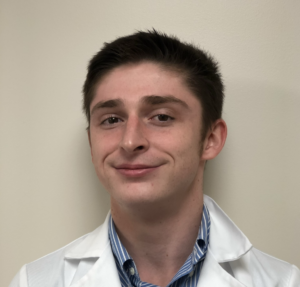
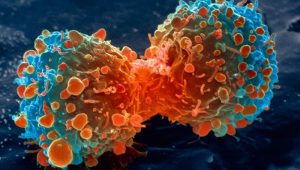

![Cross section of the ovary of an anglerfish. Photo by NIH Image Gallery via Flickr. [CC BY-NC 2.0]](https://s36063.pcdn.co/wp-content/uploads/2017/10/anglerfish_ovary770x-300x225.jpg)
